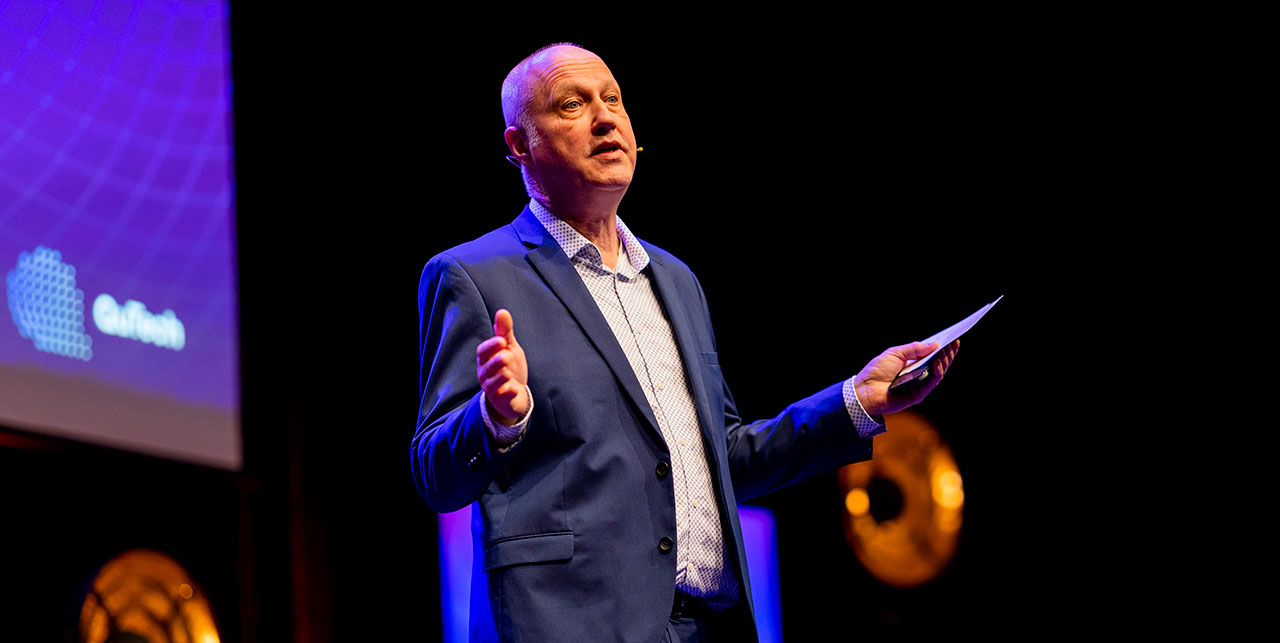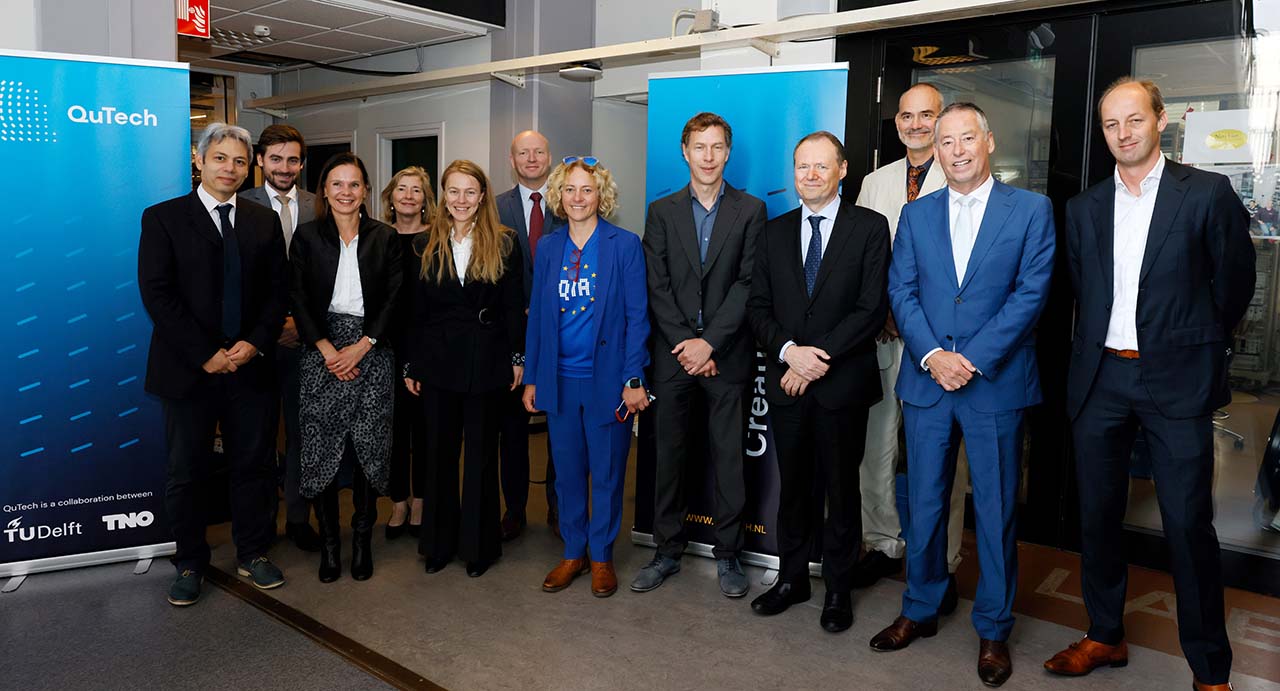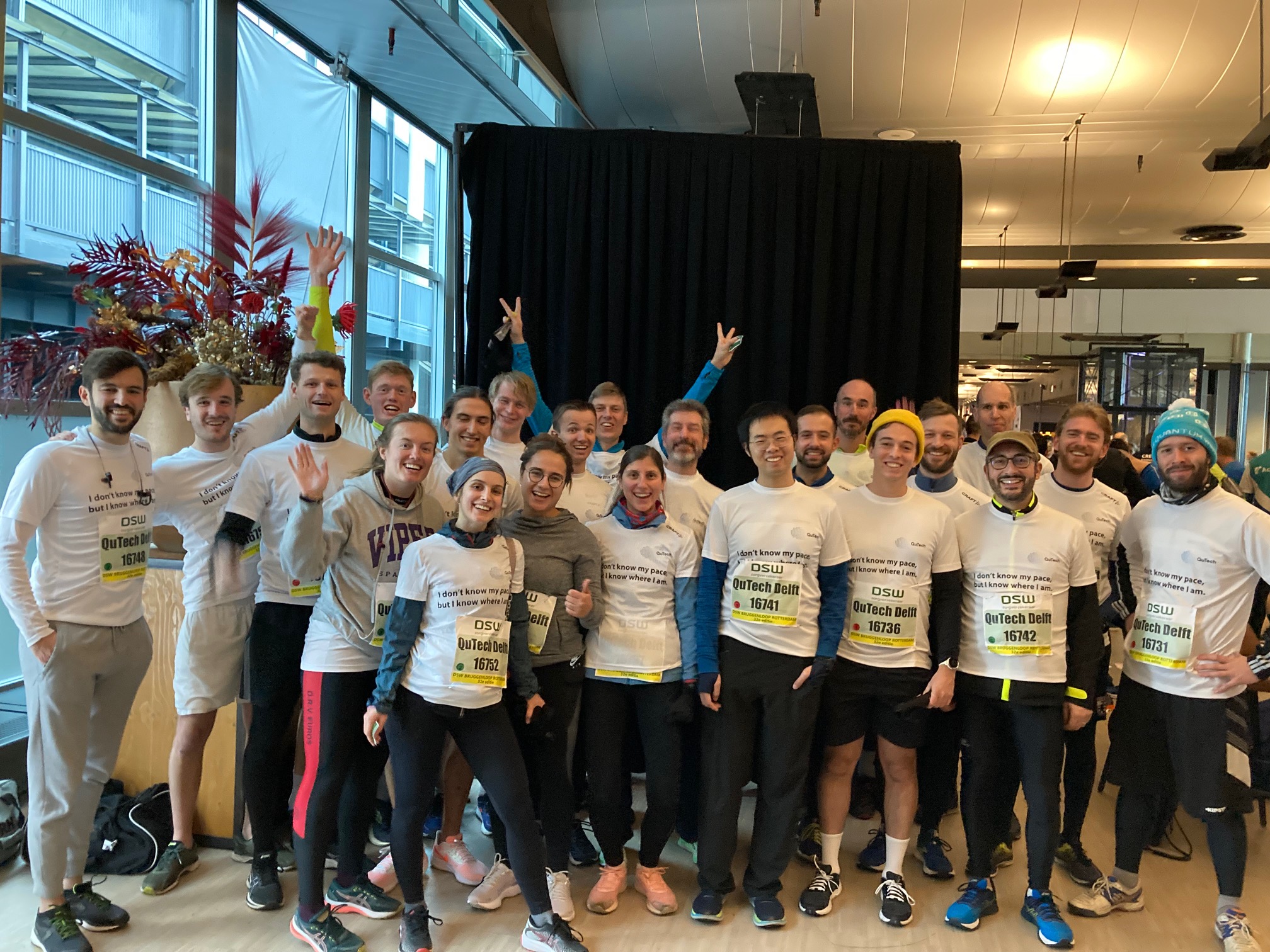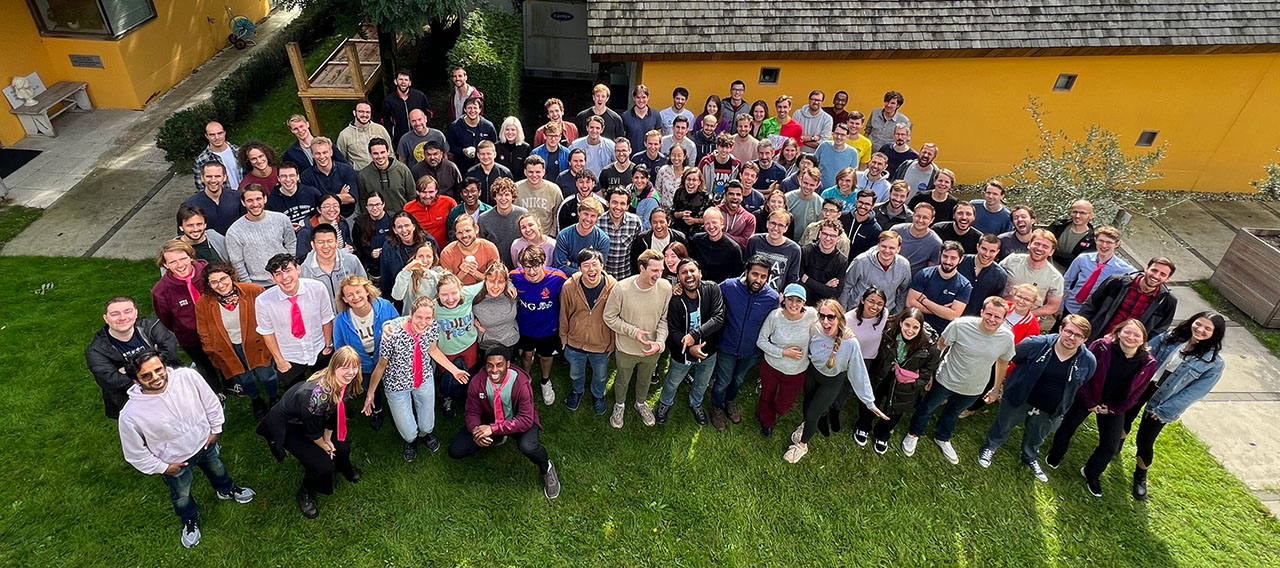Outreach
QuTech aims to spark enthusiasm and curiosity for quantum technologies among a wider audience. We are keen to share our fascination with quantum science with anyone, including young people (notably primary and secondary school students), technology enthusiasts, professionals, politicians, and future users.
Our principal investigators are widely recognized as thought leaders both in the Netherlands and abroad. They are often asked to contribute their expert views on quantum technology to media productions, companies, and institutions.
The QuTech Speakers are young and highly motivated PhD students, engineers, and postdoctoral researchers who can be invited for talks. In 2023 they provided numerous interviews, podcasts, blogs, presentations, and other outreach activities for the broader audience. Through the regular QuTech Speakers Assembly meetings and workshops we aim to enable our speakers to represent QuTech and confidently share their work with the world.
2023 was also the year that the QuTech Nano Art project was set up. PhD students Laurens Feije and Gerben Timmer and some of their colleagues participated in an exhibition at the TU Delft Library with beautiful nano art; images from the microscopes in their labs that show beautiful things that can’t be seen with the naked eye.

QuTech Talks
The quantum computer is going to change our world in ways we cannot even imagine. Because of its enormous computing power, the quantum computer takes little time to perform difficult calculations that would take your own computer over a million years. Anne Marije Zwerver explains how it all works on the online platform ‘Universiteit van Nederland’.
The Asociación de Becarios de la Fundación Barrié created a video with Marta Pita Vidal as part of a series of videos called ‘Becarios por el mundo’ (‘Scholars around the world’). These videos are presented by former scholars of the Barrié Foundation, the Spanish foundation that funded Marta’s master’s studies five years ago. The goal is to inspire and awaken vocation among young people, as well as to provide information about the topics on which former scholars are working at the moment. In this case, Marta talks about quantum computing in general and about the research we do here at QuTech.
Director of Research Lieven Vandersypen opened a symposium at the Dutch House of Representatives on the implications of quantum technology. The lecture was attended by over 80 invited guests, including members of parliament, representatives of the Digital Affairs Committee, representatives from various ministries, the Rathenau Institute, TNO, and others.
Quantum technology is elusive to many, but it has the potential to dramatically change our understanding of nature and the world around us. Using the principles of quantum mechanics, quantum technology can solve problems that are unsolvable for classical computers. This opens the door to unimaginable breakthroughs in various fields, such as materials science, medicine, and artificial intelligence. Arian Stolk talks about all these things and more in this TNO #ditisonzetijd podcast.
A computer built on particles that can teleport and be in two places at once. It may sound like magic, but it will be a reality not too far in the future. One of the people inherently linked to the construction of that quantum computer is Leo Kouwenhoven, physicist, and professor at TU Delft. In 2012, he discovered evidence for the Majorana particle; a major breakthrough in the field of quantum computing. That was major news at the time, but eleven years later, the quantum computer is still futuristic. So how close are we to building the first real quantum computer? And will it really be the computer of the future? Leo Kouwenhoven talked about all this on NPO Radio 1.
The information quantum computers can provide us with will be worlds away from that of standard computers. Because of this, the standard internet alone will not suffice in allowing us to access this quantum information; a quantum internet must be developed to keep up with the immense increase in computational power. Kian van der Enden was featured on the online channel of The Royal Institution to discuss how we can build a quantum internet and whether it will be truly unhackable.
Anne-Marije Zwerver, postdoc at QuTech, created two videos in collaboration with the NEMO Science Museum in Amsterdam about the unhackable quantum internet and why the smallest particles on Earth don’t behave the way you would expect them to. These videos were inspired by questions asked by people on the NEMO 100 Jaar website.
Antonio Manesco, postdoc at TU Delft and QuTech, was featured on The Science Talk YouTube platform. In an episode of Under the Microscope he discussed quantum materials, quantum computing, qubits, topological insulators, the need for open science, and inequality in academia.
Ronald Hanson, professor at the TU Delft and QuTech, gave a short lecture at Reykjavík University on the occasion of the university’s 25th anniversary in 2023. Sigurður I. Erlingsson, professor at the Faculty of Engineering, spoke with Ronald about his research on the foundations of quantum theory and its practical applications for the university podcast.

Visits
QuTech representatives visited primary schools, high schools, companies, and government events to discuss quantum technologies and their potential. We also hosted a variety of lab tours for alumni, students, journalists, (potential) business partners, and other visitors.
On Friday 22 September, QuTech and Quantum Delta NL (QDNL) were honoured to welcome Director-General Roberto Viola from the European Commission. The delegation discussed the Dutch quantum ecosystem and technological advancements in Europe with representatives from QuTech, Quantum Delta NL, the Dutch Ministry of Economic Affairs and Climate Policy, and the Ministry of Foreign Affairs. They also visited the start-up labs in House of Quantum, and subsequently joined a tour of QuTech’s labs and facilities, together with TU Delft Rector Magnificus Tim van der Hagen.

